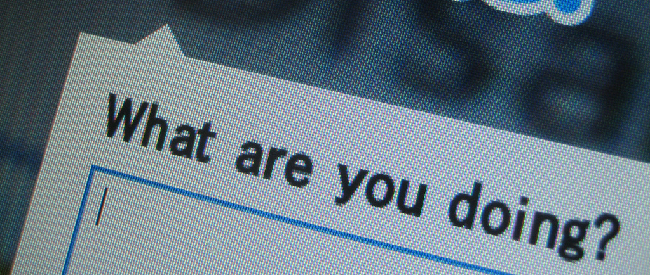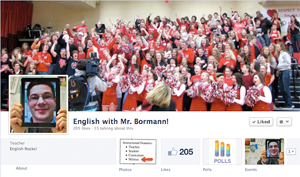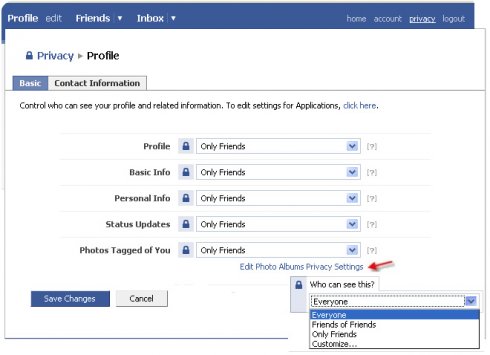When it comes to safeguarding pupils online, some teachers will want to take a ‘better-safe-than-sorry’ approach to the issue. Keir McDonald, Chairman of EduCare, argues that the benefits of learning online outweigh the risks commonly associated with the internet.

As adults, we know that the internet is not a good or bad thing, just as there are no good or bad books (only well written or badly written books). It’s true that there are parts of the internet which are enlightening and breathtaking, and other parts which are deeply problematic. However, we don’t fear for our own safety every time we use Google or a social networking site. Why then are well-meaning teachers so frequently driven to alarmism when it comes to students going online?
One pleasing outcome of Innovate My School’s ‘30 great British education-innovators to follow on Twitter’ article was that it got some of our followers talking about the use of Twitter by educators. Sue Dixon of Thinking Child is particularly interested in the different kind of tweeters that education offers. While it’s a humorous topic, it’s interesting to examine the different characters to whom we’re all now accustomed.

Twitter is a relatively new concept but it is a social media platform that the world of education has massively embraced. And you can see why; there are obvious advantages to being able to connect with so many other people from the same sphere as you; swapping ideas in real time, catching up on latest news and theories etc.

Five years ago, when I first started working with clients on social media, I needed to explain to many of them what it was. Times have changed. Nearly every school now has some kind of presence on social media, but few use it well.
In a nutshell, social media is where your entire school community resides:

The whole reason for educators to fear Facebook was because "it's unsafe and can't be monitored." Which is partially true, but wasn't convincing enough for me.
Now with 1:1 programs popping up all over, companies like Edmodo, Moodle, and Schoology are developing safe ways for teachers and students to communicate outside of class time. These free online tools are great, but they operate on a more closed basis than Facebook.
However, I don't run my class like that. My class is open, ideas are shared, and if someone goes along the lines of inappropriate, then that's just another opportunity for me to teach.

As the use of social media in education increases, so does the argument for and against. The purpose of this article is to try and take a balanced view of both sides of the coin and also to look at some of the reasons why schools won’t engage using social media. In order to achieve this, Matt Britland and Alan Mackenzie have collaborated, with Matt looking at the curriculum aspects, and Alan looking at any e-safety aspects.
The first step to understanding some of the issues was to create and Tweet out a link to a survey of 10 simple questions, the results of which were all saved to a Google Docs spreadsheet. Then, a further Google Doc was created to collaboratively write the article.

In my experience, students have never been brilliant at checking their school emails, especially the older kids. This makes communicating with them quite difficult when they are not sat in your class.
A great way to improve this is to use Facebook groups. Now, this presents a problem. The main one being schools tend to be terrified of social networks. Possibly because they do not understand them? However, if you have a forward thinking school, you can overcome this by showing them how useful they can be. Once they are aware of this they may let you give Facebook groups/Twitter a go.

Following my response to Sir Michael Wilshaw’s call to ban mobile phones from the classroom, further questions need to be asked about the direction we are taking regarding the way our students communicate and the means they use to do so. Drawing from previous posts and subsequent comments, I’ll set out below why I think schools need to deal with the real reason why smartphones have become ubiquitous in our classrooms: social networking.
The use of social networking is increasing in all areas of society but, although students have been active in social networking for almost a decade now, during this time, schools and teachers have largely ignored their students’ clear desire for peer interaction and communication outside the classroom.

Do you have a policy on how teaching staff should present themselves online? This article includes an ICT code of conduct with rules about online communication for school staff. It also refers to official guidance and a clause in the GTCE code of conduct which covers teachers’ behaviour.
Hellingly Community Primary School in East Sussex has an ICT code of conduct for staff. It sets out the rules that all staff must comply with when using ICT facilities both within the school and away from the school.
The section covering online communication includes statements such as:

In April this year, the NUT warned teachers about the dangers of befriending pupils on social networking sites such as Facebook. The implications are so great that some schools have banned teachers from using Facebook altogether.
It's certainly true that Facebook can be a perilous place for teachers. Is it okay to accept a “friend request” from a pupil whom you know personally? What happens if you reject that friend request? Can you prevent pupils from viewing your pictures and wall posts? What should you do if a pupil posts a message on your wall? What happens if a pupil sees a comment you've made on someone else's wall?

A community-driven platform for showcasing the latest innovations and voices in schools
Pioneer House
North Road
Ellesmere Port
CH65 1AD
United Kingdom